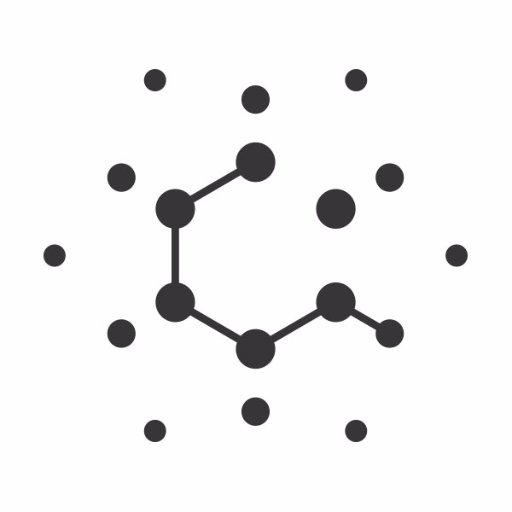
Peter Richtarik
@peter_richtarik
Followers
8K
Following
11K
Media
827
Statuses
4K
Federated Learning Guru. Tweeting since 20.5.2020. Lived in 🇸🇰🇺🇸🇧🇪🇬🇧🇸🇦
Saudi Arabia
Joined December 2015
Diana was the driving force behind all our variational inference work, and any department would be lucky to have her!
I'm on the academic job market! I design and analyze probabilistic machine-learning methods---motivated by real-world scientific constraints, and developed in collaboration with scientists in biology, chemistry, and physics. A few highlights of my research areas are:
1
1
9
This way of thinking about floats gave rise to the "natural" quantization scheme: https://t.co/AxH7qDL8hT : randomized rounding to the nearest (negative or positive) integer power of 2.
arxiv.org
Modern deep learning models are often trained in parallel over a collection of distributed machines to reduce training time. In such settings, communication of model updates among machines becomes...
The most intuitive explanation of floats I've ever come across, courtesy of @fabynou
https://t.co/XNiZNZTNlf
0
2
6
We've just finished some work on improving the sensitivity of Muon to the learning rate, and exploring a lot of design choices. If you want to see how we did this, follow me ....1/x (Work lead by the amazing @CrichaelMawshaw)
3
20
161
Random photo of KAUST. (working from this spot today)
0
0
42
Kaja's Google PhD Fellowship featured around KAUST...
KAUST PhD student Kaja Gruntkowska has been awarded a @Google PhD Fellowship, becoming the first-ever recipient from the GCC countries. Recognized for her work in Algorithms and Optimization, her research advances both the theory and practice of optimization for machine
1
3
125
I feel strongly that, while I understand the challenges they're feeling to run this, that this is the wrong decision. What Arxiv is in practice versus what it is in reality is very different. In practice there are already moderation rules, but they're so minimally enforced (due
The Computer Science section of @arxiv is now requiring prior peer review for Literature Surveys and Position Papers. Details in a new blog post
17
27
328
Bad move, indeed.
Arxiv has been such a wonderful service but I think this is a step in the wrong direction. We have other venues for peer review. To me the value of arxiv lies precisely in its lack of excessive moderation. I'd prefer it as "github for science," rather than yet another journal.
0
0
2
I firmly believe we are at a watershed moment in the history of mathematics. In the coming years, using LLMs for math research will become mainstream, and so will Lean formalization, made easier by LLMs. (1/4)
47
193
1K
I crossed an interesting threshold yesterday, which I think many other mathematicians have been crossing recently as well. In the middle of trying to prove a result, I identified a statement that looked true and that would, if true, be useful to me. 1/3
63
304
3K
100% agree on the productivity boost. One just needs patience to correct mistakes, which are more subtle than before imo. I had a nice interaction with GPT-5-pro while proving a convex analysis lemma: https://t.co/N4oEv0S37X The model didn’t write the full proof, but the
Totally agree with @ErnestRyu that AI helpers will become very useful for research. But in the near future the biggest help will be with *informal* math, the kind we work out with our collaborators/grad students on a whiteboard. I already use frontier models to help write/debug
5
18
158
Our research group at the University of Zurich (Switzerland) is seeking a PhD candidate in intersection of theory and practice in areas such as distributed optimization, federated learning, machine learning, privacy, or unlearning. Apply here!
10
81
323
Yuri Nesterov is a foundational figure in optimization, best known for Nesterov's accelerated gradient descent (1983). This "momentum" method dramatically speeds up convergence, making it a cornerstone of modern machine learning. He also co-developed the theory of interior-point
0
24
252
We bridge theory & practice: prior work studies an idealized SVD update. We analyze the implemented inexact (Newton–Schulz) iteration and show how approximation quality shifts the best LR & test on nanoGPT. With @SultanAlra60920 @bremen79 @peter_richtarik
https://t.co/Cddu9LIPlJ
arxiv.org
The Muon optimizer has rapidly emerged as a powerful, geometry-aware alternative to AdamW, demonstrating strong performance in large-scale training of neural networks. However, a critical...
1
6
35
amazing...
Meet the Krause corpuscle, the neuron responsible for sensing vibrations of sexual touch. It is most sensitive to frequencies around 40 to 80 hertz, which is precisely the range of vibrating sex toys. https://t.co/FRQupbPXnU
0
0
2

















